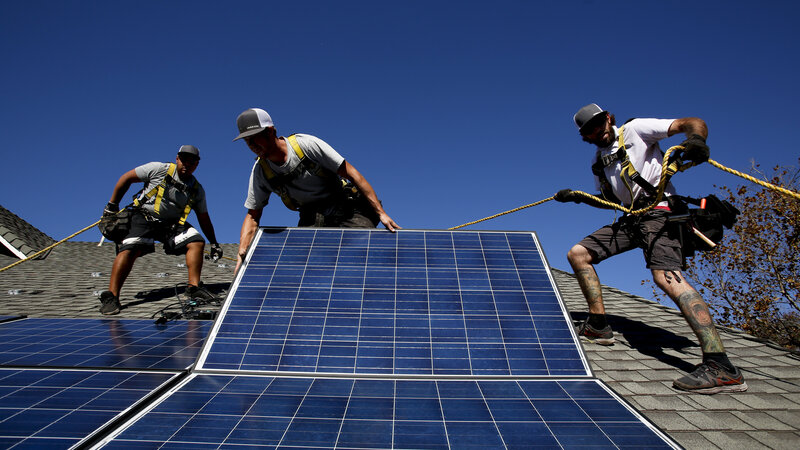To prevent Florida from drowning, the government can take many actions. Of course, each action isn't going to be easy, but it'll be worth it in the end.
Solution 1- Carbon Tax
I propose that the government should mandate a carbon tax because the emission of carbon is very bad for the environment and with Florida's 60-70% reliance on natural gas, it definitely isn't much help. Scientists say that we should reduce US carbon dioxide emissions by 80% by the year 2050 in order to efficiently reduce the effects.
Solution 2- Mandating Solar Panels/Green Roofs
I believe that if we mandate that all new urban buildings be built with solar panels or green roofs, we could greatly reduce the effects of climate change on Florida. Cities all around the world have already taken this step, most recently San Francisco, and I don't see why Florida can't follow suit.
Solution 3- Create Stricter Chemical Use Regulations
In 1987, 197 countries signed the Montreal Protocol, an agreement to stop using certain chemicals that contribute to the depletion of the ozone layer. This unified action is predicted, by NASA, to allow holes in the ozone layer to be fully restored by 2070. If we take a closer look at the chemicals we are using today and what effects they have on the environment, eliminating the use of the harmful ones, we could possibly allow for greater environmental benefits.
Final Solution
The most practical and possible solution for Florida to create efforts to better the environment would be to implement solar panels or green roofs on all new buildings in urban areas. Florida is noted as the "Sunshine State" meaning the product of solar panel use could be grand, yet, it has and continues to drop in the ranking of states for solar installation, currently being ranked at number 18. Oftentimes, people are doubtful of solar panels because they are expensive, but there would be no excuse because with this solution they can choose to implement green roofs instead. Green roofs can help to reduce storm water runoff,
improve air quality and weaken the urban heat island effect and offer a much cheaper alternative to solar panels with
equal or greater benefits. There really is no excuse as to why this wouldn't be possible, since cities in Argentina, France, Canada and more have already taken this action.
 |
| Anne Cusack, LA Times via Getty Images |
 |
| Diane Cook and Len Jenshel, National Geographic |
No comments:
Post a Comment